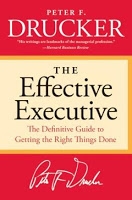
geralt / Pixabay
Tax time is here and with it often comes reflection. For business owners, working on or reviewing business and personal tax returns offers an opportunity to assess the previous year. Whether 2020 was a year to forget or your business adjusted and thrived during the pandemic, analyzing your company’s financials during the tax filing process can yield important insights.
Did you set financial goals for both the business and yourself?
If the answer is yes, that’s great! More likely than not, you are probably hyper-focused on building your company and its bottom line rather than setting personal financial goals. Or perhaps you think that your financial future is tied so closely to the success of your company that your business and personal financial goals are identical.
Now is the time to step back and reevaluate.
As a business owner, your professional and personal fortunes are tied together to an extent. Yet, they should be evaluated separately; you need clear financial goals for both your company and yourself. Balancing personal and business financial goals is more likely to deliver success on both fronts.
So, how can you create that balance to ensure your business thrives without neglecting your personal financial future?
The following tips are well-established strategies that ensure all business owners can find firmer financial footing.
Diversify Through Investments
The most important, global way a business owner can ensure their future personal financial well-being is to avoid having all their financial eggs in one basket. Thus, it’s crucial to diversify your investments beyond the business you own. While your investment in the company may well generate the highest return over a lifetime, the company will have greater inherent risk, particularly “single enterprise” risk. To protect against having one’s entire financial future riding on their company, a business owner would be well advised to develop a diversified investment portfolio.
Focus on Retirement Savings
A highly effective way for business owners to ensure their own financial well-being is to offer a qualified retirement savings plan that both you and your employees can participate in. There are a number of program options, including a 401(k) Profit Sharing Plan, SEP or SIMPLE IRA. For newly established or cyclical companies, SEPs (Simplified Employee Pension Plans) are an attractive option since employer contributions can vary from year to year, as long as each employee receives the same amount. Offering a SIMPLE IRA gives the employer contribution options – they can either match employee contributions or contribute a fixed percentage of salary each year. Also, from an administrative standpoint, the SIMPLE IRA is indeed simple since there are no filing requirements for the employer with the IRS; rather, the investment firm handles the filing.
Of course, you also can establish and fund your own IRA accounts. A common question is around selecting a Traditional IRA or Roth IRA. This IRA resource guide can help you identify your priorities and select the best type of plan for your needs.
Protect the Bottom Line with Business Insurance
Another way to ensure a company’s financial well-being, which in turn supports your financial future as a business owner, is to guard against potential damage to the company by having adequate business insurance coverage. No one wants to see their hard-earned success threatened by a natural disaster or lawsuit. Among the types of business insurance to consider are general liability insurance, business income insurance and commercial property insurance. In addition, key person insurance is recommended if the death of a key employee would threaten financial viability. Finally, business owners should consider carrying an umbrella policy with your personal insurance. This policy provides additional money to cover insurance claims, which in turn helps protect your business assets.
Follow Policy Changes and Adjust
The first three strategies focused on changes you can control. This tip emphasizes the importance or monitoring regulatory developments. If you want to prepare for the future and ensure you have realistic financial goals, you need to understand changes out of your control, notably regulatory shifts that will impact your business. For example, small businesses with government contracts will benefit from President Biden’s recent signing of an executive order closing the loopholes in The Buy American Act — requiring that companies accepting federal contracts must be based fully in the U.S. and prohibiting them from sourcing materials internationally. Since the Federal government purchases close to $ 600 billion in goods and services annually, this is good for American businesses.
Regulatory changes can hurt business prospects as well. For example, a recent executive order that will negatively impact certain energy and construction businesses is the revocation of the permit to construct the Keystone XL oil pipeline. Without the pipeline, it is likely that businesses’ energy costs will be higher. Closely following regulatory changes that will impact your business is a key part of setting and meeting your financial goals.
Bonus Tip: Buy Your Building
A final strategy blends both business and personal financial goals. If possible, purchase your business site, whether it be retail, service, or manufacturing space. By doing so, one of the larger costs of doing business becomes an asset over time. And this asset can ultimately serve as its own form of a retirement plan since it can be sold down the line or it can become a rental revenue stream. Of course, maintaining a good personal credit score will be important here.
It’s understandable that business owners focus predominantly on growing their companies. You pour your heart and soul into your company and it can be difficult to take a step back. Yet, a balanced approach that prioritizes both personal and business financial goals is crucial. Responsible planning and diversification can contribute to both business and personal financial success over time.
Business & Finance Articles on Business 2 Community
(53)
Report Post







